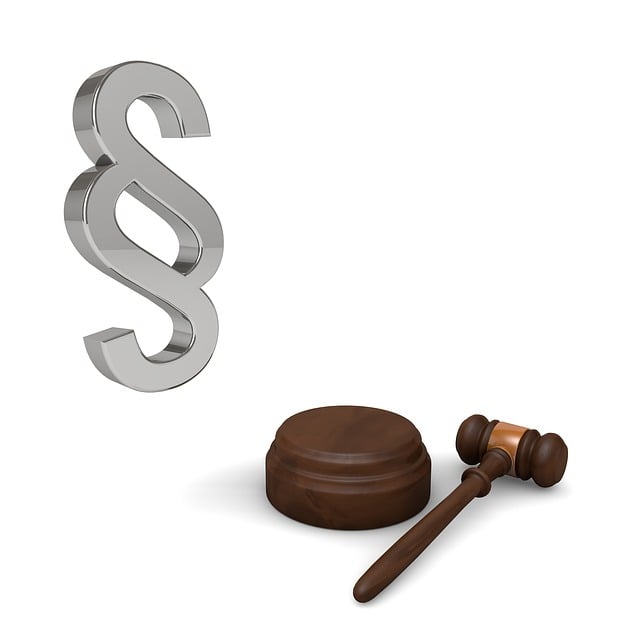Ignoring labor law violations leads to severe consequences: hefty fines, legal liability, damaged reputation, and social repercussions. Non-compliance fosters injustice, exploits workers, and erodes public trust. Proactive compliance, facilitated by legal counsel, prevents these outcomes, promotes fairness, and safeguards businesses from high-stakes trials.
In the intricate landscape of criminal law enforcement, understanding labor law violations is paramount. This comprehensive guide delves into the far-reaching Consequences of Ignoring Labor Law Violations, exploring both immediate and long-term impacts on individuals and employers. From short-term repercussions like fines to long-lasting legal liabilities, non-compliance comes at a steep cost. Learn how proactive strategies can ensure compliance, protect worker rights, and mitigate the severe ramifications that follow.
- Understanding Labor Law Violations: A Comprehensive Guide
- Impact on Individuals: Short and Long-Term Consequences
- Legal Ramifications for Employers: Fines, Penalties, and Liability
- Strategies for Prevention: Ensuring Compliance and Worker Rights
Understanding Labor Law Violations: A Comprehensive Guide

Labor law violations can have severe consequences for businesses, potentially leading to significant financial and reputational damage. Ignoring these issues during any stage of the investigative and enforcement process can result in hefty fines, legal fees, and even criminal charges. Each jurisdiction has its own set of regulations aimed at ensuring fair treatment of workers, and non-compliance is not tolerated.
When a violation is suspected, it’s crucial to understand the scope and impact immediately. High-stakes cases often arise when businesses fail to adhere to labor laws during hiring practices, wage calculations, or workplace safety protocols. These violations can prompt investigations by regulatory bodies, leading to stringent penalties and potential changes in business operations to rectify the issues and avoid future infractions.
Impact on Individuals: Short and Long-Term Consequences

The impact of Criminal Law Enforcement extends far beyond the immediate consequences of a trial or conviction. For individuals, both short-term and long-term effects can be profound. In the short term, those facing criminal charges often experience significant stress, anxiety, and disruptions to their daily lives due to the legal process itself. The financial burden of legal representation, fines, and restitution can also cause severe strain on personal finances, impacting families and communities.
Looking longer-term, individuals convicted of crimes may face challenges in securing employment, housing, and social services due to their criminal record. This can lead to ongoing cycles of poverty, marginalization, and further criminal activity as a means of survival or desperation. However, with the right legal representation, including winning challenging defense verdicts, individuals accused of white-collar offenses can navigate these complexities and mitigate the consequences of labor law violations. Through philanthropic and political communities supporting access to quality legal counsel, those affected by such crimes have a chance at rehabilitation and reintegration into society.
Legal Ramifications for Employers: Fines, Penalties, and Liability

When employers ignore labor law violations, they face significant legal ramifications. Fines and penalties are common consequences, ranging from modest sums to substantial financial burdens that can cripple a business. These penalties are designed not only to punish but also to deter future non-compliance. The impact extends beyond monetary losses; employers may also face civil liability, exposing them to lawsuits and the potential for paying damages to affected employees.
In severe cases, negligence or deliberate ignoring of labor laws can lead to criminal charges and even jail time for responsible parties. Achieving extraordinary results in such scenarios is not uncommon, as an unprecedented track record of successful prosecutions sets precedents that further strengthen labor protections. Juries often view these cases with a critical eye, demanding accountability and justice for violations that disrupt the fabric of fair workplace practices.
Strategies for Prevention: Ensuring Compliance and Worker Rights

In the realm of criminal law enforcement, proactive strategies for prevention are paramount to mitigating illegal activities and ensuring justice. One critical aspect involves upholding labor laws to prevent exploitation and protect workers’ rights. Businesses and employers must stay vigilant to avoid violations that could lead to severe consequences, including hefty fines, legal repercussions, and damage to their reputation. By adhering to labor regulations, companies can foster a culture of fairness and deter potential offenders from engaging in high-stakes cases that may ultimately result in losing challenging defense verdicts.
Compliance with labor laws not only safeguards the rights of workers but also acts as a deterrent against criminal activities. Ignoring these regulations can have far-reaching impacts, especially in high-risk industries where worker exploitation is more prevalent. The consequences of labor law violations extend beyond financial penalties; they erode public trust and can taint a company’s image, making it harder to secure future business opportunities. Therefore, staying informed and proactive about labor rights is essential for businesses aiming to thrive in today’s competitive market while avoiding jury trials that could become defining moments in their corporate history.
The consequences of ignoring labor law violations can be severe, impacting both individuals and employers. For workers, these violations can lead to immediate and long-term challenges, affecting their well-being and rights. Employers face legal penalties, fines, and potential liability, which can significantly harm their operations and reputation. However, proactive strategies for prevention, including ensuring compliance and upholding worker rights, are essential to mitigating these consequences. By understanding labor law violations and implementing effective measures, both parties can navigate the legal landscape responsibly, fostering a fair and secure work environment.






